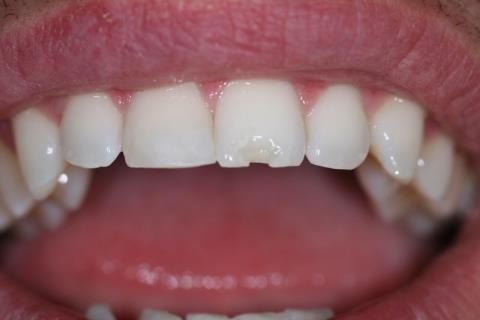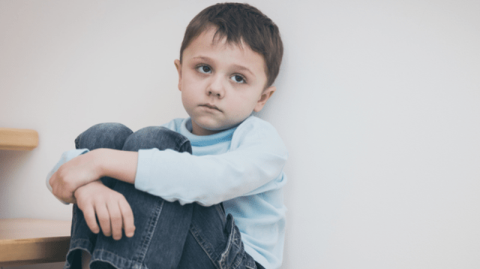Pleural effusion can occur at any age. Pleural effusion in children tends to be more dangerous because the disease is often detected late. In this article, SignsSymptomsList will help you find out what you need to know about this dangerous disease.
Pleural effusion - a dangerous disease that can happen to anyone, regardless of gender or age. In particular, this pathology can occur in infants and young children. Pleural effusion in children is in most cases more dangerous than in adults because it is difficult to detect and the immune system is weak. Therefore, every parent should equip themselves with certain knowledge about this disease.
Causes of pleural effusion in children
Pneumothorax in children can occur from causes inside and outside the lungs. The most common causes of pleural effusion are:
- Infection after lung injury ( pleurisy , pneumonia, superinfection, lung abscess...).
- Infections from neighboring areas such as pericardium, mediastinum, liver... spread to pleural infection and cause pleural effusion.
- Children with heart failure lead to venous blood stasis, fluid leaking out of the blood vessel wall causing pleural effusion.
- Some bronchial cancer, pleural cancer, lung cancer when metastasized can also cause pleural effusion.
- Some bacteria such as pneumococcal, streptococci, staphylococcus, E.coli, Klebsiella pneumoniae... and other viruses can also be the "culprits" that cause children to have pleural effusion.
- In addition, increased blood urea, sarcoidose, cirrhosis, kidney failure, autoimmune disease, ... are also the causes of pleural effusion in children.
Image of fluid overflowing in the pleura on one side
Symptoms of pleural effusion in children
Symptoms of pleural effusion in children will vary depending on the condition and location of each child. However, parents can recognize this disease early through common symptoms such as:
- Children have difficulty breathing even without vigorous exercise. This condition persisted, showing no sign of remission or cessation.
- Children feel chest pain, especially when breathing deeply or talking loudly. Some children cannot take deep breaths.
- When changing the lying position, the child has a dry cough.
- In most children with pleural effusion, a fever of 38 to 40 degrees Celsius is quite common. When the child has inflammation, infection of the lungs and nearby organs, the child will have a higher fever.
- In the X-ray image, the lungs will be dark and irregular, the pleural fluid often gathers lower, the heart is pushed to the opposite side.
- Babies who are not yet able to speak cannot express their discomfort in words. Parents may find that the child is tired, has an intense fussiness that cannot be calmed down, stops eating, and has trouble breathing.
 Parents need to carefully monitor the symptoms of pleural effusion in children
Parents need to carefully monitor the symptoms of pleural effusion in children
What is the difference between pleural effusion in children and adults?
Pleural effusion in children is often much more dangerous than in adults. Firstly, because the child's immune system is still weak, when sick, the symptoms are often more severe, progress faster, and recovery is slower. Second, it is difficult for children to accurately describe unpleasant sensations in their bodies. Young children do not even know how to speak, making it difficult to diagnose the disease and detect the disease later.
In infancy, the respiratory system is not fully developed. When children with pleural effusion are not detected and treated promptly, it can easily lead to respiratory failure and threaten the child's life. The treatment of pleural effusion in children is also more difficult and complicated. Many supportive treatment measures such as breathing exercises, respiratory physiotherapy... the children could not coordinate to perform.
Treatment of pleural effusion in children
Depending on the severity, underlying disease and health status of the child, doctors will develop different treatment regimens. However, the main measures are often applied in the treatment of pleural effusion in children such as:
- With a full-term baby, the doctor will give the baby 100% oxygen to breathe better.
- If there is a lot of fluid in the pleura or there are signs of infection, doctors will apply pleural aspiration to remove some of the fluid. This can help reduce pressure on the lungs and make it easier for the patient to breathe.
- If the amount of fluid is large and shows signs of increasing, it is necessary to place a drainage tube to drain the pleural fluid.
- In the case of a child with an infection that leads to a pleural effusion, the effective treatment is to use antibiotics to kill the bacteria causing the disease.
- In the case of children with pleural effusion due to cancer, the indicated treatment may be surgery, chemotherapy, radiation therapy...
 Treatment of pleural effusion is prescribed and prescribed by doctors
Treatment of pleural effusion is prescribed and prescribed by doctors
- In the case of children with recurrent pleural effusions, doctors may have to periodically install catheters.
- Physiotherapy treatment lasting at least 3 months will help drain fluid and pus (if any) out. This also works to prevent complications of pleural thickening.
- After the end of treatment at the hospital, parents need to apply the treatment of pleural effusion for children at home according to the instructions of the doctor. Let children rest, relax comfortably, build healthy and nutritious meals, give children medicine according to the doctor's instructions... are the ways parents should do.
Prevention of pleural effusion in children
Pleural effusion is really a dangerous disease that seriously affects the respiratory function of children. Ideally, parents should know how to prevent pleural effusion in children. Some things parents should do every day when taking care of children such as:
- Let the children have fun and have a reasonable rest.
- Build a healthy menu, enough nutrients for children to increase their resistance .
- Wash your hands with antibacterial soap every day to eliminate disease-causing bacteria.
- Any disease, even the most common such as colds, bronchitis, etc., needs to be treated early and thoroughly.
- When a child has any unusual signs of health, parents should take the child to see a doctor as soon as possible.
The above is the basic information parents should know regarding pleural effusion in children . Hopefully with this information, parents can be proactive in caring for and preventing illness for their children. For effective disease prevention, parents can give their children daily immune-boosting functional foods.
 Parents need to carefully monitor the symptoms of pleural effusion in children
Parents need to carefully monitor the symptoms of pleural effusion in children Treatment of pleural effusion is prescribed and prescribed by doctors
Treatment of pleural effusion is prescribed and prescribed by doctors





